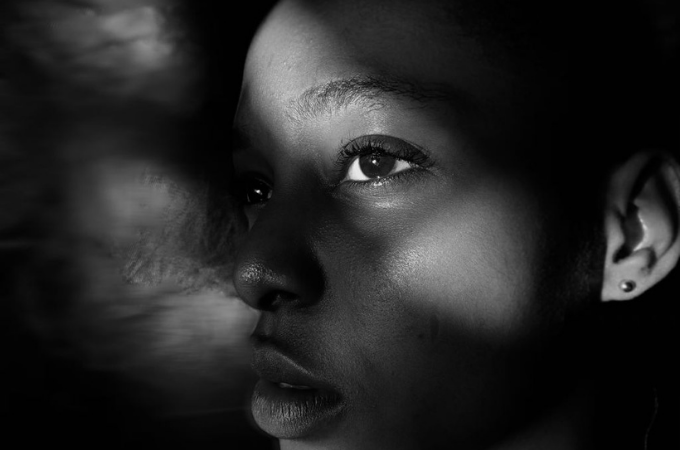
I
My neighbour, a young family man, has bought a Toyota Highlander. With a steel, swarthy skin the countenance of valour, the beastly thing with its tireless breath for an engine, heralds the apogee of Japanese engineering. It perches staidly on the small open nest of the ramshackle two-storey, which is apropos Feng Shui but a tragedy for the three alliteratively named live-in siblings — Jeffrey, Jesse, and Jethro — whose makeshift, after-school football playground the vehicle now claims two-thirds of, like an old colonial power.
It’s his first car. A red L, twined to the vehicle’s tailbone, announces his unpracticed steering hand. He dotes on his man-toy with effusive suspicion, cross-checking every half hour to be sure that it has not been spirited away.
Sometimes at midnight, when man and wildlife are asleep, I see him poised, akimbo, as he holds his newest conquest in triumphant gaze, his vista telegraphing unbelief. I imagine the interior monologue animating his sinews. Eh! Is it me that has finally bought a tear-rubber motor? Now, where’s that Home Economics teacher who called me good-for-nothing? He smacks his lips, over and again, a show of vainglory betrayed by a copious sprawl of moonbeam. And I witness it all; me, the insomniac busybody playing unnoticed spectator in this nocturnal fete of petit materialism.
If I have dedicated acres of text to edify the commonplace — describing a vehicle in detail, that is, it’s because those four-tyred contraptions are a serious sociological phenomenon, the staff of Moses parting the sea of Nigerian humanity, ostracising the have-nots from the haves.
“The apparel oft proclaims the man,” Shakespeare wrote centuries ago in Hamlet. Yet I’m convinced that had the great bard been of our epoch, he’d have interchanged cloth for a car. And why not? If you own a car, here in grime-spattered Lagos, your life steamrolls on easy wheels.
While the Ojuelegba traffic may still frequently hinder your commute, at least your full-blast AC and wound-up windows prevent any trauma filtering in from the outside chaos. You’re spared the blasting horn of trailers, the relentless hand of the Gala seller assailing your face, the smell of rotten tomatoes and of things unplaceable; of orbs of perspiration around the bus conductor’s pits suspended over your head as he passes change to a passenger. “Oshodi, owa o!” he bellows to the driver — his voice, ragged by dry gin and life, melds incoherently with Kwam 1’s “Ade Ori Okin” emitting from the death chamber of a sound system, your head begging for Ibuprofen.
Owning a car increases your odds of romantic success. Needless to say, more cars, more women. As that popular meme declares, “Money can’t buy happiness but somehow, it’s more comfortable to cry in a Mercedes Benz than on a bicycle.” In the Nigerian version, keke-napep or okada stands in for bicycle, and believe it when I say that Lagos women, in matters of the heart and loins, like to milk that epigram dry for its wisdom.
Watching my neighbour fuss over his vehicle sparked a thought. I wondered if after graduation I, too, will come into the fortune of acquiring this symbol of fully-fledged adulthood. If, after school, I’ll have a nice house, authored novels, visited Paris and Berlin, and achieved all the fantasies of an undergraduate’s imagination.
It doesn’t help that I am studying “English and Literary Studies,” one of those courses, like many in the Humanities, where your lecturers drum it into your ears that “you can work anywhere” — the precise words of the course adviser in year one, given in response to a gangly student who had asked that deathless poser: Where can one work with an English degree?
While I know this to be true, that facility with textual interpretation and pristine writing skills exalts you above the sheeple, I find myself, sometimes, longing for the security that the hard sciences passed on to you. Study Medicine and Surgery and there’s an endless coterie of anesthetised bodies to prod and pry. Read Law and a three-square meal, with the tossed-in bottle of scotch, becomes a given. It’s in moments like these that I throw a searching look the way of one of our leading essayists, Oris Aigbokhaevbolo, struck by the strange irony of his situation.
The man, dome as bald as it is wise, had studied Pharmacy at University of Benin, one of those disciplines where your future occupation was not an abstraction wound around a hopeful platitude — “You can work anywhere.” Oris forsook Pharmacy for writing, a relatively less lucrative vocation. I guess we could say, if we squint hard enough, that the man remains faithful to his stripes, never fully divested of his lab coat and the Hippocratic impulse to both diagnose and medicate. After all, his entire celebrity — from his feisty Facebook bon mots to his more structured articulations in Brittle Paper and Chimurenga — rests solidly on the trenchant biopsies that he performs, not on human viscera, but on English sentences. Where a pharmacist would prescribe folic acid and an apple a day, Oris prescribes the excision of dangling modifiers from a paragraph and the boycott of mixed metaphors.
II
Three years ago, I was a bright-eyed freshman who struggled to find my classrooms. Anxious, yet elated to have been torn away from parental caveats. Some six months from now, barring any meddling by ASUU, I shall bid campus a permanent farewell. Everything will end — homework, awkward library run-ins with ex-lovers, campus sartorial codes that wish to dress you up à la Mormon Church, late-night WhatsApp wisecracks with course-mates, conversations with chummy lecturers, and the colourful nicknames for lecturers famed to be anal-retentive examiners. Everything.
This must be how octogenarians feel, knowing every inhaled breath could be their last, and that the life they have known — to whose contours the coarse topography of their hands have grown accustomed — is nearing its coda. I can’t help but think of Martin Scorsese’s The Irishman. Deploying a fat stack of themes, Scorsese philosophises on the ebbing of time, showing how its slow clockwise ambulation tempers the riptide of yesteryears, nudging deeds and events of formerly sombre repercussions into irreverent forgetfulness.
Take for instance the tiff between a former roommate and me in late 2018. At the time it had been a mortal affair—now, it scarcely registers in contemporary recollection — a thing of the past, water under the Obadore bridge.
I cannot recall the origins of our quarrel, but I suspect it may have been something banal. Was it because I had brought girls to the hostel in unseemly succession? Maybe it was because he was to pretty up the room and hadn’t done so? Or because he had neglected to flush the toilet after use as he scurried to an 8 a.m. class and I — unwitting, half-yawning and looking to offload a straight line of urine — had opened the lid to a sight of (intoning Fela) expensive shit, eerily resembling the ewa goin I dolloped onto sliced bread the previous morning?
I do a Google research to see if I could find writings that relay the experiences of recent Nigerian graduates — lore of job search, post-NYSC syndrome if any such thing existed — a handhold to which my insecurities could cling. I find maybe two or three listicles on Nairaland, all marred by lean insight and bad grammar. Beyond that, nothing else surfaced. But I’m not surprised. We suffer from the atrophy of thought. In this year’s Big Brother Naija, Yerins (Yerimene Abraham), the polymath, was the first evicted housemate, because, who needs all that self-indulgent bookishness? This is why those who revel in debates, of the sort said to enliven pre-1980s student halls of the University of Ibadan, are mocked with qualifiers like “quarrelsome” and “talkative.” To shirk such uncool labels, even the natural geniuses shy from discourse, producing a nation of mutes.
With little to go on in the way of a post-uni playbook, I’ll continue to keep an eye on my neighbour for more eccentricities — fodder, perhaps, for a future novel— while reminding myself that, indeed, my English degree allows me to “work anywhere”.
Photo by Damilola Oshodi


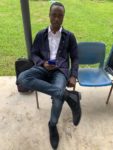
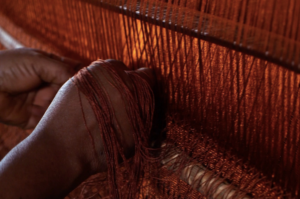


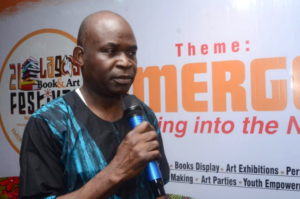
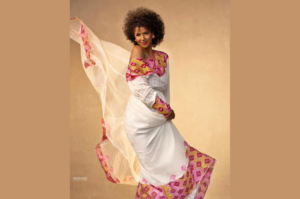
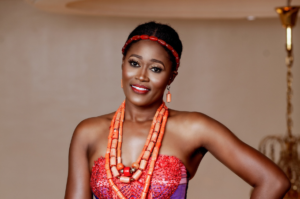

Ayorinde Hope January 11, 2022 08:28
The only question I seem to ask myself at break of day is, When? Post NYSC, and yet more questions than answers.